#Japanese Legends
Photo

The Hosokawa Retainer Shimamura Danjô Takanori by Utagawa Kuniyoshi (1843-44)
#utagawa kuniyoshi#art#woodblock prints#fine art#19th century#19th century art#edo era#edo period#woodblock print#japanese art#japanese artist#samurai#japanese legends#crabs#asian art#classic art
1K notes
·
View notes
Text

Lupin Week 2024 Day #4
Legend of Rupanshima Taro (i hope this counts as mythology lol
Anyway, I took the story of Urashima Taro and included Lupin, since they kinda sorta did an episode based around it in part 2. Tried my best to incorporate a half ukiyo-e/lupin style in here
#anime#ibispaintx#lupin iii#lupin sansei#lupin the 3rd#lupin the third#my art#anime fanart#fanart#japan#legend#urashima taro#lupin week 2024#japanese legends
69 notes
·
View notes
Text
a japanese legend says that if u can’t sleep at ⠀ ⠀ ⠀ night it’s because someones dreaming of u ݂ ݂ ♡︎

#coquette#coquette dollete#text#quote#japanese legends#fairy tales#dreamy#angelcore#aesthetic blog#aesthetic#aesthetically pleasing#dollcore#dollette#just girly posts#just girly thoughts#this is a girlblog#aesthetic dividers#stars#pinkcore#soft aesthetic#softcore#white aesthetic#pink aesthetic#aesthetic text#lizzy grant#female hysteria#milkmaid#lobotomy#fawncore#girlblogger
46 notes
·
View notes
Text
According to a Japanese legend, if you cannot sleep at night it is because you are awake.
#taken from the top comment on a DoctorMike video#sorry for stealing it; attribution due to PUNK3N#japanese legends#sleeping
34 notes
·
View notes
Text
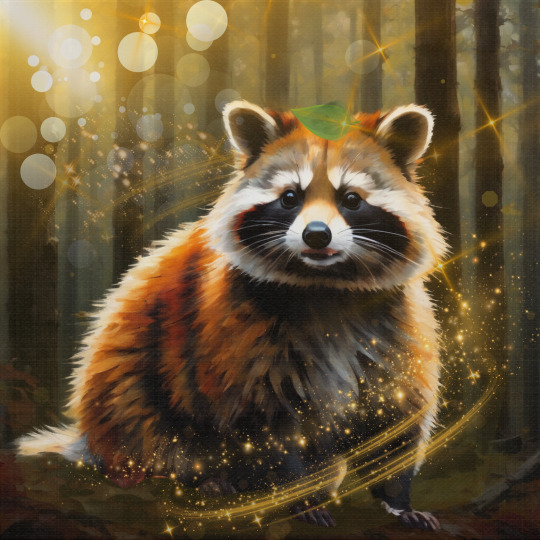
Bake-danuki (化け狸), a mischievous shape shifting Yōkai (妖怪) found in Japanese mythology, resembling a tanuki, or Japanese Racoon Dog.
#tanuki#yōkai#bake danuki#mischevious spirits#mystical beings#japanese yokai#alteredai#japanese legends#japanese folktale#japanese folklore#mythical creatures
20 notes
·
View notes
Text
It fucks me up so much that recently, whenever there's an oni in manga or anime, everybody calls it an "ogre". It isn't just the official dubs and translations - people on the Internet also do that.
But an oni is its own thing and creature in Japanese mythology, art and folklore. It is not an ogre. Just like it is not a troll for example. It is its own thing, and this isn't even a matter of finding an equivalent. I do understand why shinigami is translated as "grim reaper" or "god of death" because yes, it does translate well the idea of this character. But an oni is so much more than just an ogre.
It feels like how in the first French translations of The Lord of the Ring, because the translator decided the audience might not get the name "Shelob", they literaly renamed her Arachne. And so it isn't Shelob that our brave hobbits fight against - but the literal Roman figure of Arachne. Like... what the heck.
Translating "oni" as "ogre" constantly does feel to me as if someone had decided to translate "hobbit" by "tanuki" because both are short, chubby, hairy, mostly benevolent creatures that interact with humankind.
They're oni. And people today know enough about oni to recognize it as its own thing, and not need a vague cultural appropriation, thank you very much. Heck, I learned about oni when I was a little child due to the Jackie Chan Adventures! It isn't some deep lore only the most refined scholars know about...
#oni#ogre#translation#lord of the rings#manga#anime#shelob#hobbits#tanuki#japanese folklore#japanese monsters#japanese legends#japanese religion#because yes the oni is a religious character too i bet you all forgot that
7 notes
·
View notes
Text
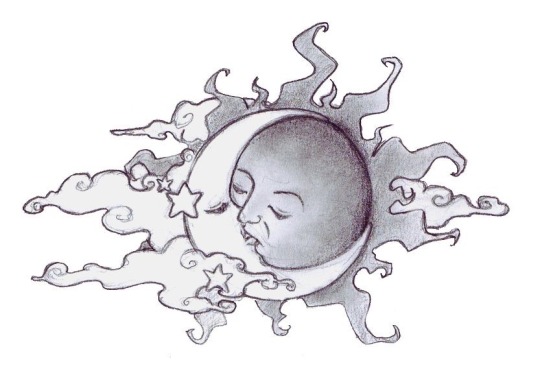
the Sun and the Moon have always been in love
he was hot and bright, she was soft and mysterious
everyday they crossed path on the horizon
and they yearned for each other but time kept them apart
so God painted the skies with eclipses
as proof that even the most improbable love can unite
7 notes
·
View notes
Text
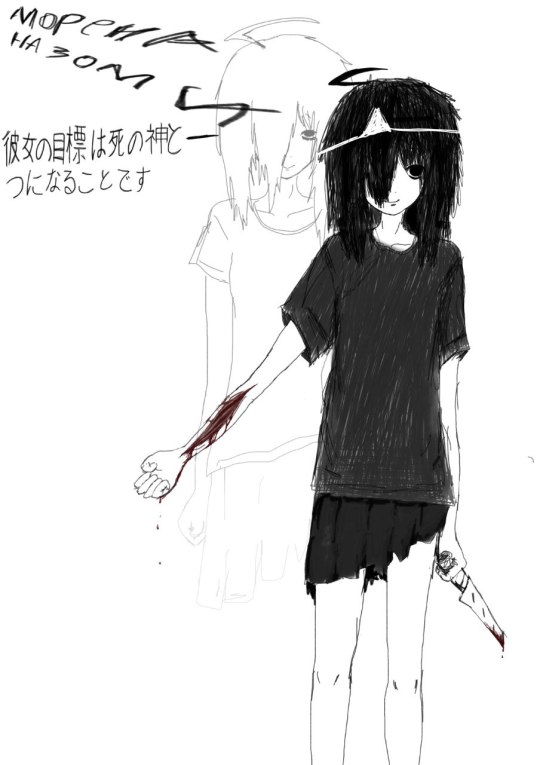
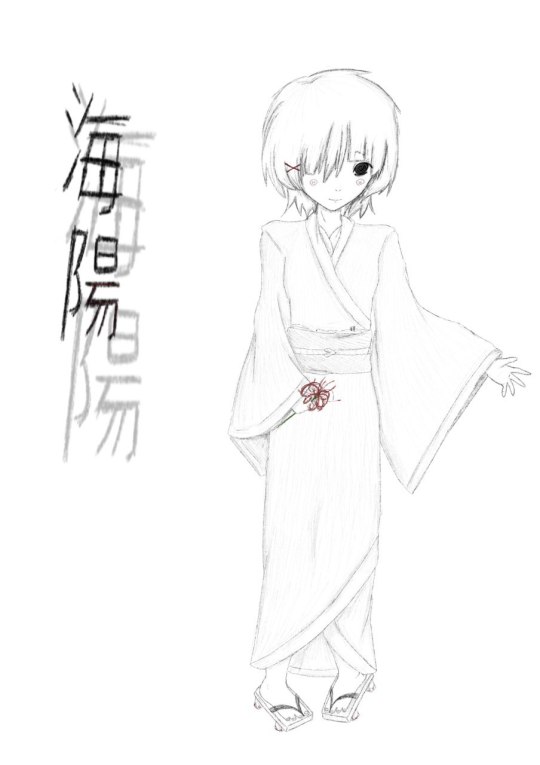
Dead
19 notes
·
View notes
Text
Sick. Stayed home. Went to the doc for covid testing. Got a narcotic cough syrup. So, I just took a dose, now that I'm home and can just fall asleep if needed. Waiting for it to make me too sleepy, I'm finally reading this, which I bought back in August last year!
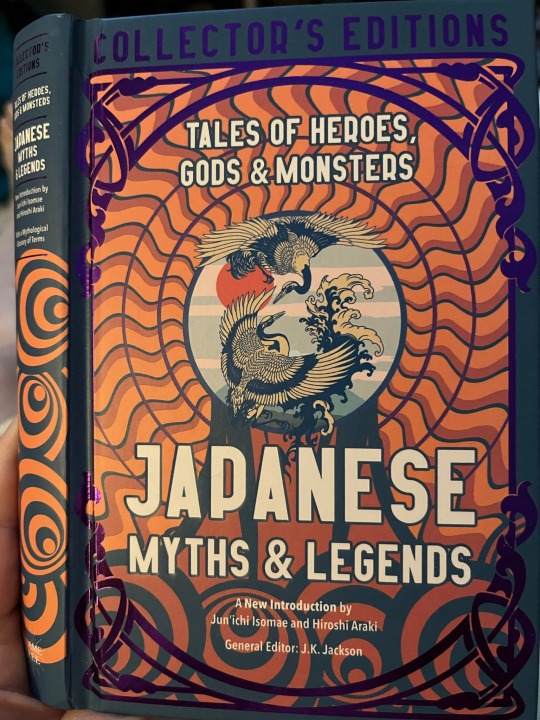
Wondering how many myths and legends in here are incorporated into Black Butler. Should at least be a few... like the two lovers separated by the river should be in here... somewhere.
I bought a small collection from this series of books. This is the first one I've cracked open.
#black butler#kuroshitsuji#japanese mythology#japanese legends#japanese folklore#japanese folktale#my stuff#stuff I bought#research#reference materials#apr 6 2023#books#book collection
39 notes
·
View notes
Text
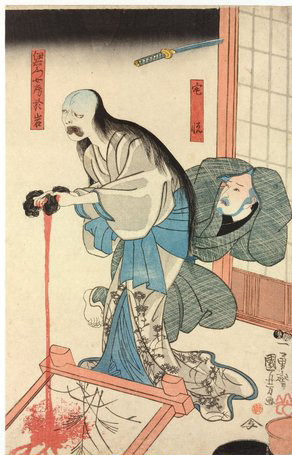
Iemon nyobo Oiwa, Takuetsu 伊右衛門女房お岩, 宅悦 - Utagawa Kuniyoshi (1847-1852)
Oiwa (left), the murdered wife of Iemon, with disfigured face and clasping bloody clump of hair. Takuetsu (right), the masseur is amazed by her disfigured face.
#utagawa kuniyoshi#japanese culture#japanese art#ukiyoe#japan#woodblock print#woodblock#ukiyo e#japan art#yurei#yokai#japanese legends
8 notes
·
View notes
Photo


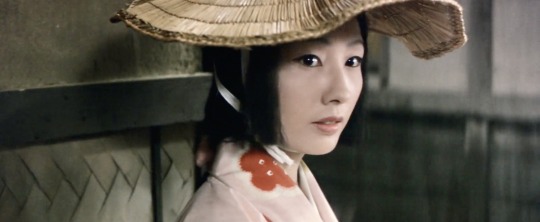



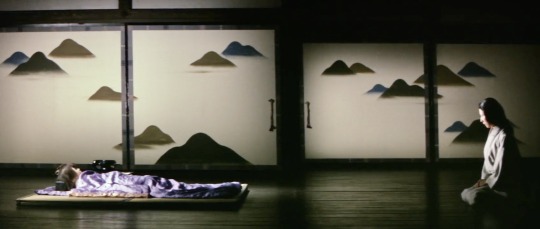
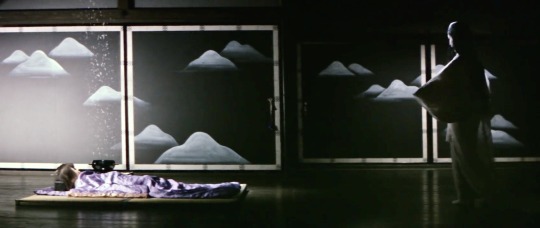

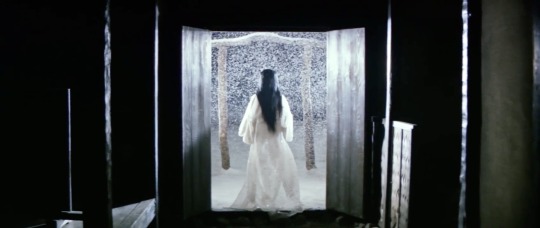
The Snow Woman (1968)
“I decided that I will not kill you. But in return, you must not tell anyone about what you see today. Even your most intimate people. Even your relatives, your wife or your children. If you say even one word about me, I will kill you.”
Based on the Japanese Folklore of Yuki-Onna, it tells the tale of a sculptor, Yosaku (Akira Ishihama), who encountered a ghost on a stormy snowy night where his mentor was frozen to death leaving him as the only survivor.
Few years later, Yosaku met a beautiful woman named Yuki (Shiho Fujimura) when his mother offered her shelter from the heavy thunderstorm for the night where she befriends them both and admires his craftsmanship.
Over time, both Yosaku and his mother grew fond of Yuki and beg her to stay a bit longer to which she agreed. They eventually express their love for each other and got married, have a child and live a good life, which did not last long.
A priestess saw Yuki at the temple and knows who she really is, confronted her at her home but Yosaku does not believe it as he had seen a ghost before and Yuki is nothing like her. But Yosaku had forgotten the promise he made.
Having broke his promise he made on that stormy night, Yuki reveals her true self to Yosaku before killing him but her attempt was stopped by their child who was crying. Yuki had a change of heart and decides to leave them instead.
***
It’s a good story which shows you that the humans are much more scarier than ghosts as humans are judgemental and egoistical creatures.
There are many folklore versions of Yuki Onna depending on which part of Japan it originates, each prefecture has its own stories and legends.
For this movie, it seems that it is set during Kamakura period, judging by the clothes that they wear and the attitude of the “warriors”.

Yuki’s dressing and hair reminds me of the court ladies of Taira or Heike. She probably died while trying to flee from the war during winter.

But her spirits live on. Maybe the real reason Yuki did not kill Yosaku because he reminds her of her late husband who died in war.

At least that’s what I’d like to think. It’ll make the story more interesting when you include in some historical events.
#the snow woman#yuki onna#japanese folklore#japanese folktale#shiho fujimura#fujimura shiho#akira ishihama#ishihama akira#japanese legends#japanese myths#japanese ghost#japan#japanese classic#heian period#kamakura period#taira#heike#genpei war#japanese film
61 notes
·
View notes
Text

The Ghost of Kohada Koheiji, from the series One Hundred Ghost Stories by Katsushika Hokusai (1831-32)
#katsushika hokusai#art#ukiyo-e#woodblock prints#fine art#19th century#19th century art#edo era#edo period#woodblock print#japanese artist#japanese art#japanese legends#ghost stories#ghost#ghosts#asian art#classic art
896 notes
·
View notes
Text
"Posle tebe duša mi je ko i tvoja - prazna
Ne mogu da zavolim, to najgora je kazna
Tuđa mi je ruka sada draža od života
Nisam stena kao ti
Neću to izdržati
Samo-samo, ma da me vidiš samo
Ja neću da se smirim
Budi moj harikiri
Dobra sam
Klub je i dobro sam
I gledaju me svi
Niko me ne radi"
Elena Kitić - Harakiri

#elena kitic#harakiri#balkan music#balkan#serbia#lost love#japanese animation#japanese aesthetic#citati#balkanske pesme#love song#sad love song#ljubavne pesme#tuzni citati#japanese legends#japanese myths#japanese princess
5 notes
·
View notes
Link
Kij Johnson’s ‘The Fox Woman’ is a gripping novel of magical realism and fairytale, set in the backdrop of Japan’s Heian period. It tells the story of Kaya no Yoshifuji – a lord who falls in love with a beautiful woman only to later discover that she was a fox in disguise.
Tales of foxes transforming into humans to trick unsuspecting people are common in Japan and East Asia. It is said that as the fox grows older, they gain more tails and greater abilities until they are at their most powerful, with nine tails. In Japan, these foxes are called Kitsune, in China, Huli Jing, and in Korea, Kumiho. These foxes may transform into humans for many reasons, to steal from them, to eat them, or, as in the case of ‘The Fox Woman,’ to seduce them.
Keep Reading
#Kij Johnson#The Fox Woman#Kaya no Yoshifuji#Kitsune#Mythos#Mythology#Mythos Articles#Myths and Legends#Shapeshifting#Animal Bride#Enchantments#Japan#Japanese Mythology#Japanese Legends#Fox Magic#Mythos Reviews#Fox Spirits
18 notes
·
View notes
Text

Ohaguro Bettari (inktober 2022) by Andréa Boloch
#andréa boloch#macabre art#ohaguro bettari#ohaguro#dark art#yokai#yōkai#artworks#mythology#japanese folklore#japanese legends#photoshop art#2022#viarce
11 notes
·
View notes
Text
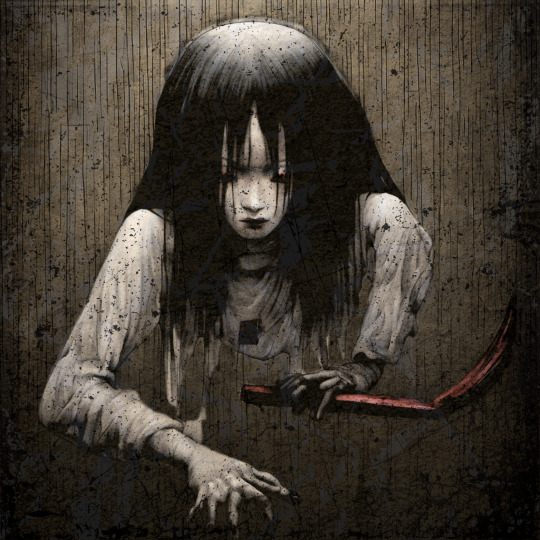
Teke Teke (テケテケ;てけ てけ)
Is an urban legend in Japan, about a girl who got cut in half by a train. She is an onryō, a vengeful spirit, who walks on her hands, carrying a scythe, and seeking victims to dismember. She is named after the sound she makes as she "walks"
#teke teke#onryō#vengeful ghost#malicious ghost#revenant#urban myths#japanese legends#urban legends#japanese folktale#japanese folklore#japanese demon
3 notes
·
View notes